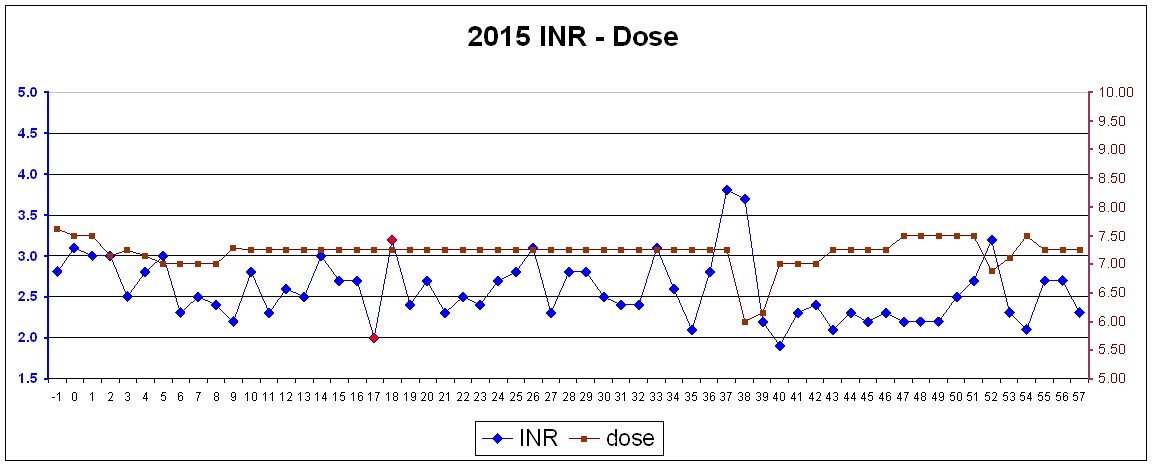My cardiologist has sent my information to the only local company that supplies INR monitoring equipment to get me set up with home INR testing. Would you believe that my insurance says my local company that I would get the meter and supplies from is in my network but the company that supplies the supplies to the local company is out of network. So since the bills comes from the out of network supplier they told me it would cost upwards of $3000 plus the monthly fees and my insurance only pays 40%. If they were in network they would pay 90%. I can go on eBay and buy a complete set up for less than $800. Ridiculous!!!
So I'm waiting for the cardiologist office to call me back to see if we can find another company, although my insurance can't even tell me what companies they work with that would be available to me.
I spent 6 hours the past 2 days working on this and still have no answers...eBay is looking better and better.
Sorry...just needed to vent.
So I'm waiting for the cardiologist office to call me back to see if we can find another company, although my insurance can't even tell me what companies they work with that would be available to me.
I spent 6 hours the past 2 days working on this and still have no answers...eBay is looking better and better.
Sorry...just needed to vent.
























